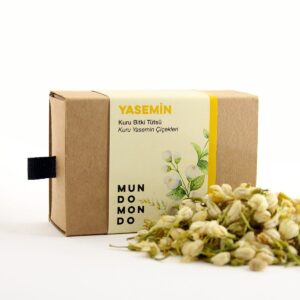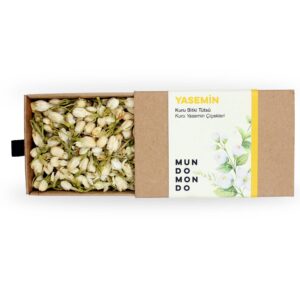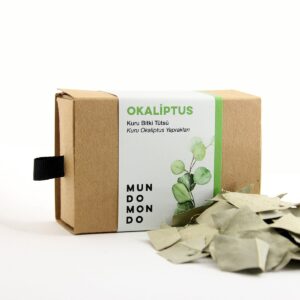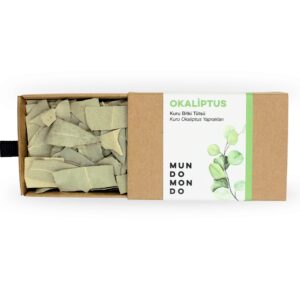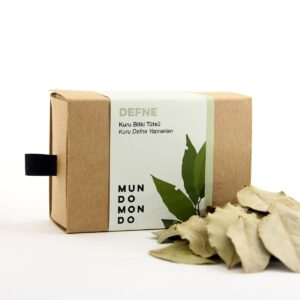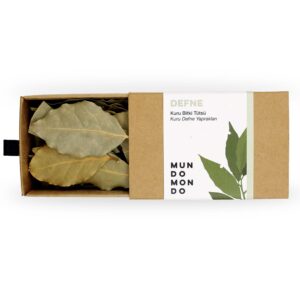Supporting our health with the healing plants nature provides has been a tradition for centuries. Today, herbal remedies are often used as complementary treatments alongside modern medicine. With herbal methods you can easily apply at home, you can protect your health and enhance your quality of life.
- Herbal Teas to Strengthen Your Immune System:
The immune system, our body’s first line of defense against illnesses, can weaken due to factors such as stress, unhealthy eating habits, lack of sleep, environmental toxins, and other challenges of modern life. Fortunately, nature offers us valuable plants to strengthen our immune system and increase our resistance to diseases. One of the most effective and enjoyable ways to consume these healing herbs is through herbal teas.
Echinacea has been used for centuries by Native Americans to strengthen the immune system. Its active compounds boost the production of immune cells, enhancing the body’s ability to fight infections. Particularly effective against colds and flu, echinacea can shorten illness duration and alleviate symptom severity.
Ginger, with its antioxidant and anti-inflammatory properties, is another important herb that supports the immune system. Its active compound, gingerol, combats free radicals in the body, preventing cell damage and strengthening the immune system. Ginger also helps alleviate cold symptoms like sore throat and cough.
Linden has been used for centuries to treat colds and flu. Its flavonoids and essential oils promote sweating, aiding the removal of toxins from the body and supporting the immune system. Additionally, linden’s relaxing and calming properties help reduce stress, indirectly strengthening the immune system.
The higher prevalence of colds and flu during winter highlights the importance of a strong immune system. Regular consumption of herbal teas such as echinacea, ginger, and linden during this time can boost the body’s resistance to diseases and reduce the risk of getting sick. These teas also support overall health with their vitamins, minerals, and antioxidants, enhancing energy levels.
Herbal teas are not only a natural and delicious way to strengthen your immune system but also provide a warm and soothing effect. By adding a few cups of herbal tea to your daily routine, you can become more resistant to illnesses and lead a healthier, more energetic life.
- Herbal Remedies to Soothe Your Digestive System:
The fast pace of modern life, stressful work environments, irregular meals, and unhealthy eating habits are among the leading factors negatively affecting our digestive system. Issues like indigestion, bloating, gas, and constipation can become significant problems that lower our quality of life and threaten our health. Thankfully, nature offers us effective herbal remedies to soothe our digestive system and address these challenges.
Fennel is a herb known for its positive effects on the digestive system. Its essential oils relax the stomach and intestinal muscles, making digestion easier. Its carminative and antispasmodic properties also help alleviate bloating and gas. A tea brewed from fennel seeds not only soothes the digestive system but also provides a pleasant and aromatic break.
Mint, known for its refreshing aroma and flavor, also offers significant benefits for the digestive system. Menthol in mint relaxes the stomach and intestinal muscles, easing digestion and reducing gas. Mint is also effective against nausea and vomiting, offering a natural solution to digestive discomfort.
Chamomile, known for its calming and soothing properties, is also effective for the digestive system. It reduces inflammation in the stomach and intestines, alleviating digestive issues. Its antispasmodic effects help relieve stomach and intestinal cramps. Chamomile tea not only supports digestive health but also improves sleep quality and reduces stress, enhancing overall well-being.
Herbal remedies are a natural and effective way to alleviate digestive issues and regulate the digestive system. However, it is essential to consult a doctor for chronic or severe digestive problems. Herbal remedies can complement modern medicine and help you maintain your digestive health naturally.
- Herbal Care to Enhance Your Skin’s Beauty:
The skin is a reflection of our health and beauty. However, environmental factors, stress, unhealthy eating habits, and aging can cause our skin to lose its vitality and radiance. Fortunately, nature offers us precious herbs to pamper our skin and reveal its natural beauty. By opting for natural herbal solutions instead of chemical-based cosmetic products, you can nourish your skin both inside and out, achieving a healthy and glowing appearance.
Aloe vera is a miraculous herb used in skincare for centuries. Its rich content of vitamins, minerals, amino acids, and antioxidants deeply hydrates, nourishes, and repairs the skin. It also soothes redness, irritation, and acne thanks to its anti-inflammatory properties. Aloe vera gel is particularly effective for soothing sunburn, insect bites, and other skin irritations.
Tea tree oil is a powerful natural oil known for its antiseptic, antifungal, and antiviral properties. It helps prevent infections caused by bacteria and fungi on the skin while addressing issues like acne, pimples, and blackheads. Additionally, tea tree oil regulates the skin’s oil balance, reduces excessive oiliness, and helps tighten pores.
Lavender oil, renowned for its calming and relaxing effects, also benefits the skin by reducing irritation and redness. Its antiseptic properties promote the healing of skin infections. Lavender oil helps diminish the appearance of wrinkles and fine lines, giving you smoother and younger-looking skin.
Herbal care products help maintain the skin’s natural balance, promoting a healthy and radiant appearance. However, keep in mind that every skin type is different, and some herbal products may not suit certain skin types. Therefore, it’s important to consult a specialist before using any herbal products and choose ones that meet your skin’s specific needs.
- Relaxing Herbs to Improve Sleep Quality:
Insomnia has become an increasingly common issue due to modern stress, anxiety, busy work schedules, and technological distractions. Sleep disturbances not only make us feel tired and lethargic but also negatively affect our physical and mental health. Fortunately, nature offers us a variety of effective herbs to improve sleep quality and ensure a restful experience.
Lemon balm is an herb known for its lemony scent and mild flavor. Its rosmarinic acid and flavonoids have calming and relaxing effects on the nervous system. Lemon balm facilitates falling asleep, extends sleep duration, and enhances sleep quality. Lemon balm tea is a natural and effective solution for those struggling with insomnia. Additionally, lemon balm oil can be used in aromatherapy to create a more relaxing sleep environment.
Chamomile has been used for centuries to address insomnia and other sleep issues. Its flavonoid, apigenin, binds to benzodiazepine receptors in the brain, promoting calming and sleep-inducing effects. Chamomile tea shortens the time it takes to fall asleep, extends sleep duration, and improves sleep quality. It also reduces anxiety and stress, making it easier to fall asleep.
Lavender, known for its pleasant aroma and calming effects, contains linalool, a compound that soothes the nervous system and facilitates falling asleep. Lavender oil can be used in aromatherapy to create a more peaceful sleep environment. Lavender tea, when consumed before bedtime, helps relax the body and ease the transition to sleep.
The effects of herbs on sleep can vary from person to person. Therefore, it is essential to consult a specialist before using any herbal products to determine the most suitable herb and dosage for you. Also, remember that herbal solutions alone may not suffice. Adhering to good sleep hygiene practices, such as maintaining regular sleep hours, using relaxation techniques before bed, and creating an appropriate sleep environment, can complement herbal remedies to enhance sleep quality.
- Natural Solutions to Relieve Pain:
Pain is our body’s way of signaling that something isn’t right. Various types of pain, such as headaches, menstrual cramps, and muscle aches, can negatively impact daily life and reduce our quality of living. Thankfully, nature provides us with several herbal remedies to alleviate pain and provide relief. These natural solutions, unlike chemical-based painkillers, have fewer side effects and work harmoniously with our body to help reduce discomfort.
Peppermint oil is known for its refreshing aroma and cooling effect. Its menthol content creates a cooling sensation on the skin, helping to alleviate pain. Peppermint oil is effective for headaches, migraines, muscle pain, and joint pain, and when applied through massage, it can help reduce discomfort. Additionally, peppermint oil can relieve sinus pressure, which often contributes to headaches.
Ginger is an herb renowned for its anti-inflammatory properties. Its active compound, gingerol, reduces inflammation in the body, thereby alleviating pain. Ginger is particularly effective for menstrual cramps, rheumatic pain, and muscle soreness. It can be consumed as tea or in capsule form. Moreover, ginger alleviates nausea, addressing other discomforts that often accompany pain.
Chamomile is known for its calming and soothing effects. Its flavonoid, apigenin, relaxes muscles, providing relief from pain. Chamomile is effective for menstrual cramps, headaches, and muscle aches. It can be used as tea or in a bath. Additionally, chamomile reduces stress, which can help ease tension-related pain.
Herbal remedies can be a natural and effective method for alleviating pain. However, the severity and cause of pain vary from person to person. Therefore, it is crucial to consult a specialist before using any herbal product to identify the most suitable herb and dosage for your needs. Identifying the underlying cause of the pain and determining the appropriate treatment method with a doctor is also essential.
With these healing herbs provided by nature, you can relieve your pain and lead a healthier life.
- Herbal Methods for Reducing Stress:
In today’s fast-paced and ever-changing world, stress has become an inevitable reality. Work pressures, family responsibilities, financial concerns, and other factors can increase stress levels, negatively affecting both physical and mental health. Thankfully, nature provides us with various effective herbal methods to reduce stress and find inner peace. These natural solutions help soothe the nervous system, promote relaxation, and calm the mind, aiding in stress management.
Lavender is a plant known for its calming and relaxing effects. Its compound, linalool, balances the nervous system, reducing stress and promoting sleep. Lavender oil, used in aromatherapy, can create a more peaceful environment. Additionally, lavender tea, with its soothing effects, can be consumed before bedtime to encourage relaxation. A lavender bath can relax both the body and mind, helping you release stress.
Lemon balm, known for its lemony scent and mild flavor, contains rosmarinic acid and flavonoids that have calming and relaxing effects on the nervous system. Effective for stress, anxiety, and depression, lemon balm can be consumed as tea or capsules. Lemon balm oil can also be used in aromatherapy to help reduce stress.
Valerian is a herb used for issues such as insomnia, anxiety, and stress. Its compounds, valerenic acid and valepotriates, have a calming effect on the nervous system, reducing stress and promoting sleep. Valerian root can be consumed as tea or capsules. However, as valerian may interact with certain medications, consulting a doctor before use is essential.
Herbal methods can be a natural and effective option for reducing stress. However, it is also important to identify the underlying causes of stress and explore various methods to manage it. Activities such as regular exercise, healthy eating, meditation, and engaging in hobbies can help reduce stress. By combining herbal methods with these lifestyle changes, you can manage stress more effectively.
Remember, everyone responds to stress differently, and some herbal methods may be more effective for certain individuals. Therefore, always consult a specialist before using any herbal product to determine the best herb and dosage for your needs.
- Revitalizing Herbs to Boost Your Energy:
Factors such as a hectic work schedule, sleeplessness, stress, and unhealthy eating habits can lead to fatigue and exhaustion throughout the day. This can negatively impact both physical and mental performance, making daily life more challenging. Thankfully, nature provides us with various revitalizing herbs to boost energy levels and keep us active throughout the day. These herbs act as natural energy sources, giving our bodies the support they need to combat fatigue.
Ginseng has been used for centuries in Eastern medicine and is known for its energy-boosting properties. Its active compounds, called ginsenosides, enhance energy production in the body, improving both physical and mental performance. Additionally, ginseng increases resistance to stress, strengthens the immune system, and enhances mental focus. Ginseng can be consumed as tea, capsules, or tablets. However, individuals with high blood pressure, heart conditions, or sleep disorders should consult a doctor before using ginseng.
Mate is a herb that has been consumed in South America for centuries and is known for its energy-boosting effects. Its components, such as caffeine, theobromine, and theophylline, stimulate the central nervous system, increasing energy levels and improving mental focus. Mate also accelerates metabolism, supports fat burning, and aids in weight management. Traditionally brewed in a special gourd with hot water, mate is now also available as tea bags or cold beverages.
Guarana, a plant native to the Amazon region, is known for its high caffeine content. Caffeine stimulates the central nervous system, increasing energy levels, reducing fatigue, and enhancing mental performance. Guarana is often consumed in powder or capsule form. Due to its high caffeine content, it should not be consumed excessively, and individuals with heart conditions should consult a doctor before use.
Revitalizing herbs can be a natural and effective method to boost energy levels and combat fatigue. However, their use should be approached with caution, and overconsumption should be avoided. Since every individual’s body and needs are different, it is important to consult a specialist before using any herbal product to determine the appropriate dose. Additionally, identifying the underlying causes of low energy and making lifestyle changes are crucial. Regular sleep, healthy eating, and exercise can naturally help increase energy levels.
- Natural Antibiotic Herbs:
Infections are the body’s response to harmful microorganisms such as bacteria, viruses, or fungi. These infections can negatively affect our health and, if left untreated, may lead to serious complications. Thankfully, nature offers powerful natural antibiotics that can help fight infections. These herbs strengthen the immune system and combat microorganisms, aiding in the prevention and treatment of infections.
Garlic has been used as a natural antibiotic for centuries. Its compound, allicin, exhibits strong antimicrobial properties, combating bacteria, viruses, and fungi. Garlic also strengthens the immune system, increasing the body’s resistance to infections. It can be consumed raw, used in cooking, or taken as a supplement.
Thyme contains compounds such as thymol and carvacrol, which provide strong antiseptic and antifungal effects. Effective against respiratory, digestive, and skin infections, thyme can be consumed as tea or tincture. Thyme oil, used in aromatherapy, can also aid in the treatment of respiratory infections.
Echinacea is an herb that helps fight infections by boosting the immune system. Its active compounds stimulate the production of immune cells, enabling the body to respond to infections more quickly and effectively. Echinacea is used to prevent and treat colds, flu, and other infections and can be consumed as tea, capsules, or tinctures.
Natural antibiotic herbs can be used as complementary treatments alongside modern medicine to fight infections. However, treatment approaches may vary depending on the severity and type of infection. Therefore, it is essential to consult a doctor before using any herbal product to determine the most suitable herb and dosage. Identifying the underlying cause of the infection and determining the appropriate treatment method with a doctor is also important.
With these healing herbs offered by nature, you can combat infections naturally and protect your health. Remember, natural antibiotics may not always be sufficient for treating infections, and modern medical treatment may be necessary in some cases.
- Herbal Steam Therapy to Open Your Airways:
Respiratory conditions like colds, flu, and bronchitis can reduce our quality of life with symptoms such as cough, nasal congestion, and shortness of breath. Fortunately, nature provides us with an effective method like herbal steam therapy to soothe our airways and alleviate these symptoms. Steam inhalation allows the essential oils of healing herbs to be absorbed through the respiratory system, supporting natural and safe healing.
Eucalyptus is a herb known for its refreshing aroma and powerful antiseptic properties. Eucalyptus oil steam thins mucus in the airways, making it easier to expel, clears nasal congestion, and relieves cough. Additionally, the anti-inflammatory properties of eucalyptus reduce inflammation in the respiratory tract, providing relief.
Peppermint is a herb known for its refreshing and cooling effects. Peppermint oil steam opens the airways, eases coughing, and facilitates breathing. It also has antibacterial and antiviral properties that help combat respiratory infections.
Thyme, known for its strong antiseptic and antibacterial properties, is highly effective. Thyme oil steam kills germs in the airways, preventing the spread of infections. Thyme also acts as an expectorant, relieving cough and clearing the respiratory tract.
Herbal steam therapy is an effective method for alleviating respiratory symptoms and speeding up the healing process. For steam inhalation, add a few drops of eucalyptus, peppermint, or thyme oil to a bowl of hot water, cover your head with a towel, and deeply inhale the steam. This therapy, particularly before bedtime, can help you breathe more easily and sleep better.
However, keep in mind that herbal steam therapy may not always be sufficient, and medical treatment may be necessary in some cases. People with chronic respiratory conditions like asthma or COPD should consult a doctor before trying herbal steam therapy.
- Herbal Remedies for Nausea Relief:
Nausea is an uncomfortable condition that can arise from various causes such as travel, pregnancy, stress, indigestion, or certain illnesses. Thankfully, nature offers us a variety of herbal remedies to combat nausea. These herbs have soothing, anti-nausea, and digestion-enhancing properties that help us naturally manage nausea.
Ginger is a powerful herb that has been used for centuries to treat nausea and vomiting. Its active compound, gingerol, relaxes stomach muscles, alleviating nausea and easing digestion. Ginger also neutralizes stomach acid, reducing heartburn. It can be chewed fresh, brewed as tea, or taken in capsule form.
Peppermint is a herb known for its refreshing aroma and cooling effect. Menthol in peppermint relaxes stomach muscles, reducing nausea and aiding digestion. Peppermint also has carminative properties that help reduce bloating. It can be used by chewing fresh leaves, brewing tea, or as peppermint oil.
Chamomile is known for its calming and soothing effects. In addition to relieving nausea and vomiting, it helps with stress, anxiety, and insomnia. Chamomile tea relaxes stomach muscles, reducing nausea and aiding digestion. Chamomile’s anti-inflammatory properties also reduce stomach inflammation, addressing other causes of nausea.
These herbal remedies can be an effective and natural way to manage nausea. However, it is essential to determine the underlying cause of nausea and seek medical advice for appropriate treatment. For severe or persistent nausea, always consult a doctor.
With these healing herbs offered by nature, you can relieve nausea and enjoy a more comfortable life.
- Herbal Oils for Supporting Hair Health:
Healthy, shiny, and strong hair is a dream for many. However, factors such as environmental conditions, stress, improper hair care products, and genetic predisposition can cause our hair to become lifeless, weak, and prone to falling out. Fortunately, nature provides us with valuable herbal oils to enhance our hair’s natural beauty and support hair health. These oils nourish the scalp, strengthen hair strands, and maintain moisture balance, helping us achieve healthy and shiny hair.
Argan oil is a precious oil derived from the kernels of the argan tree, native to Morocco. Rich in vitamin E, antioxidants, and fatty acids, argan oil nourishes the scalp, strengthens hair strands, and maintains moisture balance. It also makes hair easier to comb, prevents frizz, and adds natural shine. Applying argan oil to the ends of the hair can prevent split ends and promote healthier hair growth.
Castor oil, obtained from the seeds of the castor plant, is a thick and nourishing oil. Rich in vitamin E, minerals, and proteins, castor oil nourishes the scalp, strengthens hair strands, and helps prevent hair loss. It also promotes faster hair growth and adds volume to the hair. Castor oil can be massaged into the scalp or mixed with other oils and used as a hair mask.
Jojoba oil, derived from the seeds of the jojoba plant, is technically a wax. Its similarity to human sebum allows it to be easily absorbed by the scalp, maintaining moisture balance. Jojoba oil cleanses the scalp, prevents dandruff, and promotes healthier hair growth. It can be massaged into the scalp or added to your shampoo for use.
Herbal oils are a natural and effective method for supporting hair health. However, each hair type is different, and some oils may be better suited for certain hair types. Therefore, it is essential to consider your hair type and needs before using any herbal oil. Additionally, applying the oils correctly and avoiding excessive use is important. By regularly using herbal oils suitable for your hair, you can reveal your hair’s natural beauty and achieve healthier, shinier, and stronger hair.
- Herbs to Alleviate Menstrual Cramps:
The menstrual period can be a challenging time for many women, filled with cramps, bloating, headaches, and mood swings. Thankfully, nature provides us with various herbal solutions to relieve menstrual pain and provide comfort during this time. These healing herbs help balance hormones, relax muscles, and reduce pain, making the menstrual period more comfortable.
Chamomile is a herb known for its calming and antispasmodic properties. Its flavonoid, apigenin, relaxes uterine muscles, reducing cramps and pain. Chamomile also helps reduce stress and regulate sleep, alleviating emotional fluctuations during menstruation. Drinking chamomile tea regularly during the menstrual period can help reduce the severity of cramps and provide relief.
Fennel is a herb well-known for its positive effects on the digestive system. Fennel also contains estrogen-like compounds that help balance hormones and alleviate menstrual cramps. Fennel seeds can be consumed as tea or chewed raw. Fennel’s carminative properties also help reduce bloating and discomfort during menstruation.
Parsley, rich in vitamin C, iron, and other minerals, contains compounds called apiol and myristicin. These compounds relax uterine muscles, reducing cramps and helping regulate menstrual flow. Parsley can be consumed fresh in salads or meals or brewed as tea.
These herbal remedies are a natural and effective way to alleviate menstrual cramps and provide comfort. However, as every woman’s body and needs are different, it is crucial to consult a specialist before using any herbal product to determine the most suitable herb and dosage. Additionally, if menstrual cramps are severe or persistent, it is important to consult a doctor to check for any underlying health issues.
- Herbal Ointments for Wounds and Burns:
Minor wounds, burns, or irritations on the skin are common occurrences in daily life. Thankfully, nature offers us various herbal ointments to speed up the healing process and help the skin repair itself. These natural ointments protect the affected area, reduce the risk of infection, and support skin regeneration with their antiseptic, anti-inflammatory, and healing properties.
Aloe vera is a plant known for its miraculous effects on the skin. Rich in vitamins, minerals, amino acids, and antioxidants, it deeply moisturizes, nourishes, and repairs the skin. Its anti-inflammatory properties reduce redness, irritation, and burning sensations. Aloe vera ointment can be used for sunburns, insect bites, minor cuts, and mild burns, promoting rapid healing.
St. John’s Wort oil has been used for centuries to treat wounds and burns on the skin. Its compounds, hypericin and hyperforin, have anti-inflammatory, antibacterial, and antiviral properties. St. John’s Wort oil accelerates the healing process of wounds and burns, reduces the risk of infection, and alleviates pain. It can be applied as an ointment or oil directly to the affected area.
Lavender oil is renowned for its calming and soothing effects. Its antiseptic and anti-inflammatory properties reduce irritation and redness on the skin. Lavender oil accelerates the healing process of wounds and burns, reduces the risk of infection, and alleviates pain. Additionally, it can minimize the formation of scars.
These herbal ointments are effective for minor wounds and burns on the skin. However, for more severe injuries or burns, it is crucial to consult a doctor and follow appropriate treatment methods.
Herbal ointments support the skin’s natural healing process, helping you recover faster and more effectively. With these natural solutions, you can pamper your skin and achieve healthy skin.
- Herbal Protection Against Insect Bites:
While enjoying the warm summer days outdoors, insect bites from mosquitoes, bees, ants, and more can dampen the fun. Insect bites can cause itching, redness, swelling, and, in some cases, allergic reactions, which can be bothersome for both children and adults. Thankfully, nature provides us with various herbal solutions to alleviate the effects of insect bites and protect ourselves from them. These natural oils help minimize the discomfort caused by insect bites with their anti-inflammatory, antiseptic, and anti-itch properties.
Lavender oil is known for its calming and soothing effects. Its anti-inflammatory properties help reduce redness, swelling, and itching caused by insect bites. When diluted with a few drops of water and applied to the affected area, lavender oil provides relief and speeds up the healing process.
Tea tree oil is famous for its strong antiseptic and antibacterial properties. It reduces the risk of infection from insect bites and aids in faster healing. Tea tree oil can be mixed with a carrier oil (such as coconut or almond oil) and applied to the bite. However, as tea tree oil can sometimes cause skin irritation, it should be used cautiously and always diluted.
Basil oil is known for its anti-inflammatory and pain-relieving properties. It helps reduce pain, swelling, and itching caused by insect bites. Basil oil can be diluted with a few drops of water or applied directly to the affected area. Additionally, basil can be used as a natural insect repellent.
These herbal oils provide natural and effective protection against insect bites. However, as some people may experience allergic reactions, it is essential to test the oil on a small area of your skin before use. If no adverse reactions occur, you can continue using it. For severe allergic reactions or signs of infection from insect bites, it is important to consult a doctor.
With these healing herbs offered by nature, you can relieve the discomfort caused by insect bites and enjoy the summer to the fullest.
- Herbal Teas to Aid Weight Loss:
The journey to weight loss is one that should be supported with healthy eating and regular exercise. Herbal teas for weight loss are natural companions on this journey. These teas can help accelerate metabolism, support fat burning, and control appetite, making the weight loss process easier. However, remember that herbal teas are not a magical solution on their own and are most effective when combined with a healthy lifestyle.
Green tea is one of the most popular herbal teas for weight loss. Its catechins, a type of antioxidant, boost metabolism and support fat burning. Green tea also provides a sense of satiety, helping to control appetite. Drinking 2-3 cups of green tea daily can contribute to your weight loss efforts.
Mate tea, a traditional South American beverage, is known for its energy-boosting properties. Its caffeine content accelerates metabolism and supports fat burning. Mate tea also suppresses appetite, helping you consume fewer calories. However, due to its high caffeine content, it should be consumed in moderation and with caution, especially by individuals with heart conditions.
Rosemary tea can assist in the weight loss process with its digestive-regulating and metabolism-boosting properties. Its compound rosmarinic acid facilitates the breakdown of fats and supports fat burning. Rosemary tea also alleviates digestive issues and regulates bowel movements, preventing constipation. Consuming rosemary tea after meals aids digestion and reduces bloating.
Herbal teas for weight loss can be a helpful addition to your journey, but they work best when paired with healthy eating and regular exercise. Since every individual’s body and needs are unique, it is essential to consult a doctor or dietitian before incorporating any herbal tea into your routine.
By incorporating herbal teas into your daily routine, you can support weight loss naturally and maintain a healthy lifestyle. However, remember that these teas are most effective when combined with a holistic approach to health and wellness.
- Herbs for Supporting Liver Health:
The liver is one of the most vital organs in our body, playing a key role in digestion, metabolism, detoxification, and the immune system. However, unhealthy eating habits, alcohol consumption, environmental toxins, and certain medications can negatively impact liver health. Thankfully, nature offers us various herbs to protect and repair the liver. These healing herbs cleanse, protect, and regenerate the liver, supporting its health and improving its functions.
Artichoke is one of the best-known herbs for liver health. Its compound cynarin increases bile production in the liver, facilitating digestion and detoxifying the liver. Artichoke also regenerates liver cells, speeding up the self-repair process of the liver. Artichoke can be consumed as boiled leaves or hearts, or taken as capsules or extracts.
Milk thistle is another essential herb for liver health. Its active compound silymarin protects liver cells, reduces the harmful effects of toxins, and supports liver regeneration. Milk thistle may help in the treatment of liver conditions such as fatty liver, hepatitis, and cirrhosis. It can be consumed as tea, capsules, or extracts.
Dandelion supports the liver’s natural detoxification process. Its compound taraxacin enhances bile production, aiding in the elimination of toxins. Dandelion’s diuretic properties help remove excess fluid from the body, reducing the burden on the liver. Dandelion can be used in salads or meals, roasted as coffee, or brewed as tea.
These herbal solutions can be a natural and effective method for supporting and protecting liver health. However, individuals with liver conditions or those taking medications that may harm the liver should consult a doctor before using these herbs.
With these healing herbs provided by nature, you can protect your liver health and lead a healthier life.
- Herbs to Combat Depression and Anxiety:
Depression and anxiety are common mental health issues affecting millions worldwide. These conditions lower the quality of life, make daily activities challenging, and can even lead to physical health problems. Fortunately, nature provides us with healing herbs that can support us during these difficult times. With their calming, soothing, and mood-balancing effects, these herbs can help alleviate symptoms of depression and anxiety, guiding us toward inner peace.
St. John’s Wort has been used for centuries to treat mild to moderate depression. Its compounds, such as hypericin and hyperforin, increase serotonin levels in the brain, improving mood, reducing anxiety, and regulating sleep. St. John’s Wort can be used as tea, capsules, or oil. However, since it may interact with certain medications, it’s essential to consult a doctor before use.
Valerian is a herb commonly used for issues like insomnia, anxiety, and stress. Its active components, valerianic acid and valepotriates, have a calming effect on the nervous system, reducing anxiety and promoting sleep. Valerian root can be consumed as tea or capsules. However, it may interact with some medications and cause drowsiness, so consulting a doctor before use is important.
Lavender is known for its calming and relaxing effects. Its compound linalool has positive effects on the nervous system, reducing anxiety, alleviating stress, and promoting better sleep. Lavender oil can be used in aromatherapy to create a more peaceful environment. Additionally, lavender tea, consumed before bedtime, provides relaxation and promotes restful sleep.
These herbal remedies can be a natural and supportive way to manage depression and anxiety. However, it’s important to remember that these herbs alone may not be sufficient and that seeking professional help is essential. Individuals experiencing depression and anxiety should consult a psychologist or psychiatrist to manage their treatment process effectively.
With the healing herbs provided by nature, you can support your mental health, manage depression and anxiety, and lead a more peaceful life.
- Herbal Remedies for Relieving Rheumatic Pain:
Rheumatic conditions often cause pain, swelling, and limited movement in the joints and muscles, significantly impacting daily life and reducing the quality of living. Fortunately, nature offers us various herbal remedies to manage rheumatic pain. These natural solutions alleviate pain, reduce swelling, and improve joint mobility with their anti-inflammatory properties.
Ginger is a herb known for its powerful anti-inflammatory properties. Its active compound, gingerol, reduces inflammation in the body, relieving pain. Ginger also improves blood circulation, delivering more oxygen and nutrients to the joints. Ginger can be consumed fresh, grated, or as dried powder. Ginger tea or compresses can also help relieve rheumatic pain.
Turmeric, a staple in Asian cuisine, is renowned for its anti-inflammatory properties. Its compound, curcumin, reduces inflammation, relieves pain, and helps prevent joint damage. Turmeric can be used as a spice in meals, consumed as golden milk, or taken as supplements.
Rosemary, native to the Mediterranean region, is another herb known for its anti-inflammatory properties. Its compounds, such as rosmarinic acid and carnosol, reduce inflammation, relieve pain, and improve joint mobility. Rosemary can be consumed as tea or applied topically through rosemary oil massage. A rosemary bath can also help ease rheumatic pain.
Herbal remedies can be a natural and effective way to alleviate rheumatic pain. However, remember that these remedies alone may not suffice, and consulting a doctor for rheumatic conditions is crucial. Herbal remedies can complement modern medical treatments and help improve your quality of life.
Remember: Herbal treatments do not replace modern medicine. Always consult a doctor for any health issues. Use herbal solutions as complementary treatments alongside modern medicine to protect your health naturally.
Discover Products That Support Your Health at Mamuxa.shop!
Explore our range of products that promote a natural and healthy lifestyle. Visit Mamuxa.shop to learn more about herbal treatment methods and find the best products for your well-being.


